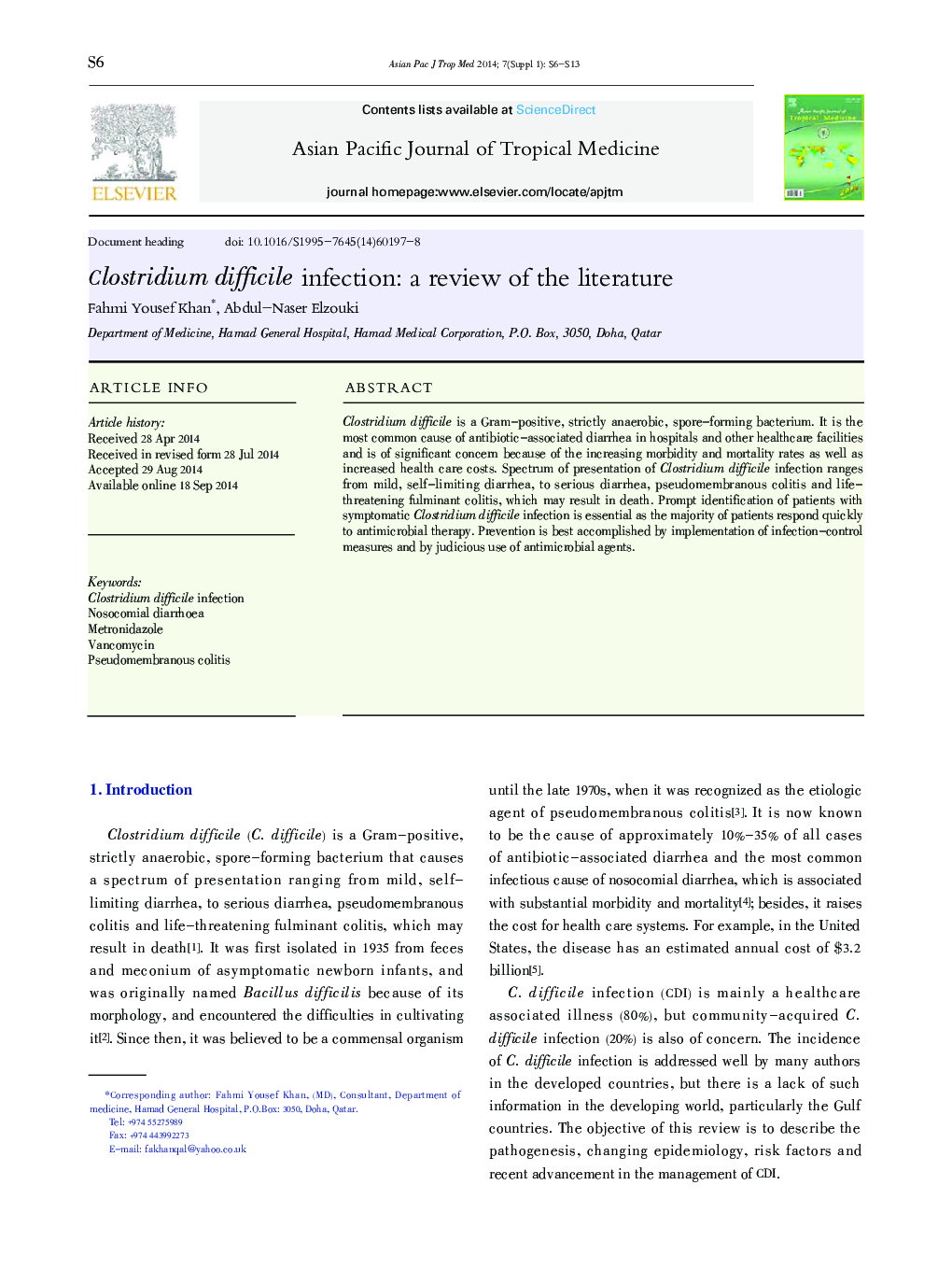| Article ID | Journal | Published Year | Pages | File Type |
|---|---|---|---|---|
| 3455897 | Asian Pacific Journal of Tropical Medicine | 2014 | 8 Pages |
Clostridium difficile is a Gram-positive, strictly anaerobic, spore-forming bacterium. It is the most common cause of antibiotic-associated diarrhea in hospitals and other healthcare facilities and is of significant concern because of the increasing morbidity and mortality rates as well as increased health care costs. Spectrum of presentation of Clostridium difficile infection ranges from mild, self-limiting diarrhea, to serious diarrhea, pseudomembranous colitis and life-threatening fulminant colitis, which may result in death. Prompt identification of patients with symptomatic Clostridium difficile infection is essential as the majority of patients respond quickly to antimicrobial therapy. Prevention is best accomplished by implementation of infection-control measures and by judicious use of antimicrobial agents.
